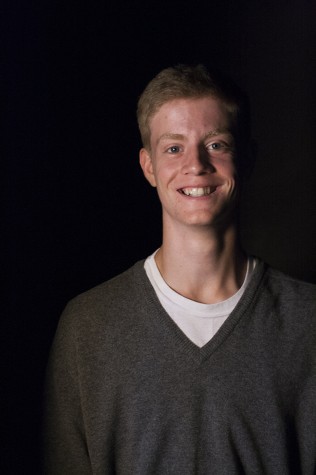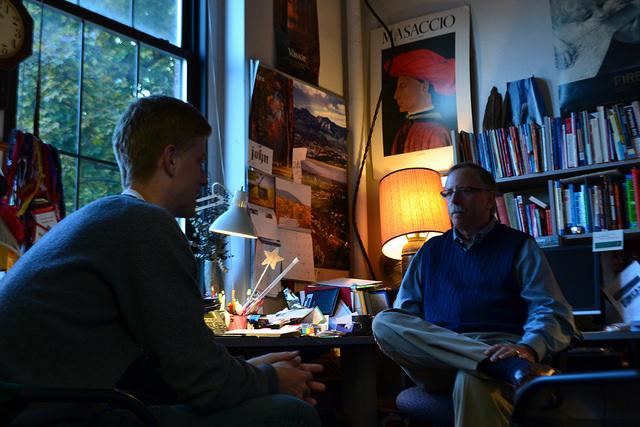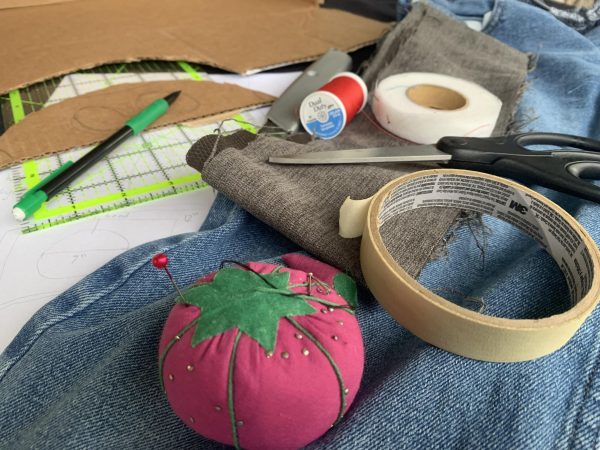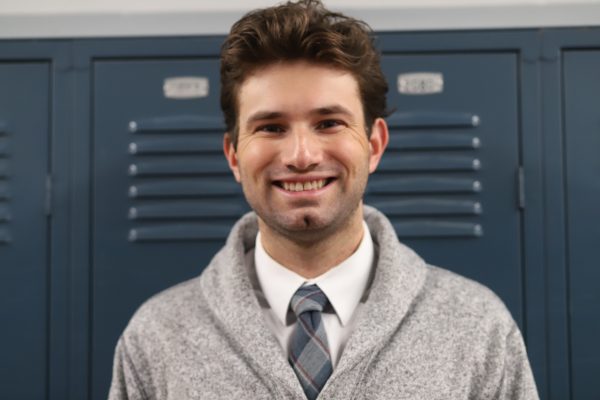Counselor Breaks down College Applications
Anxious students pulse like waves in and out of his office, brimming with questions. It is among the busiest seasons of the year for John Boshoven, the Counselor for Continuing Education at Community High School, who is working tirelessly to write recommendations and read essays before the looming college application deadline. He tries to demystify the application process by answering the daily queries of the senior class: How do I get into this college? How do I improve my application as a whole?
When looking at the high school transcript, Boshoven says that admissions officers pay attention to more than just the student’s grade point average.
To most students, the analysis of the grade point average stops at the floating decimal. But as Boshoven reports, it goes far beyond that. “Let’s say you had a little bit of a slow start in your freshman year, or the first semester,” Boshoven says. “Is there an upward trend?”
If you want to achieve an ideal GPA throughout your high school career, your academic focus has to be consistently intense throughout your four years. “So be aware that everything counts from day one, which means every assignment, every lecture, every project is important,” says Boshoven. “So rather than worrying about what college I’ll be going to, I need to be more worried about what assignment I am working on, how can I do my best on every assignment, because I want to start building a GPA.”
While establishing a foundation of exceptional grades is one of the only things that can be done to better one’s application as a freshman, Boshoven claims that it is never too early to start browsing for colleges. “I go down the halls singing the fight song or shouting the name of the colleges visiting, and sometimes freshman will look up to me and say ‘I’m only a freshman,’” says Boshoven. “And I say ‘You have plenty of time to learn about colleges. So start today!’”
The next thing they look at is the breadth of your subjects. “That means take one of the five food groups all four years,” says Boshoven. “These five food groups you know to be science, math, english, social studies and world language. That’s as deep as you can be in high school curricularly, so start off freshman year with a deep schedule. And sophomores and juniors keep it up, and seniors: keep going!” A four year breadth “will make your application more competitive within the pool of applicants,” Boshoven says.
In addition to breadth of study, Boshoven says that colleges look for a depth of study. To achieve this, “They want you to love what you do, and let’s say you’re a science guy and you love science,” says Boshoven. “Can you squeeze more science in? Can you do science things in the summer? Can you get involved in extracurricular science activities?”
Additionally, Boshoven recommends supplementing your application with community service. Colleges, he says, are not interested in people who will stay in the library the entire time. Rather, they want people who will enrich the campus life. He suggests doing this by turning around extracurricular skills like music or athletics to help others who are less fortunate.
This type of creative community service is essential to your application. Boshoven says that there’s not a lot of time for active students to do community service, but encourages all students to squeeze it into the day, but not so much that you don’t have any free time.
Colleges are also looking for rigor. “That means the toughest classes here,” says Boshoven. “If you’ve exhausted the curriculum here or wish to go somewhere else, for instance one of the big schools for an AP class, or a college course, colleges are going to see that you’ve gone for rigor.”
The next big aspect of the application that colleges look at are the essays. Boshoven says that students are taking them the wrong way.
“It’s not big drama, it’s a letter to the admissions office about something that means a lot to the person,” says Boshoven. “So it’s not that much different than writing a letter about say, taking a summer vacation.” Even in essays about other people, Boshoven says that it is important to write about what effect they had upon you, because too often students write entirely about the other person and never apply their subject to their life. He says that what colleges want to hear is what is really important to you. By reading your essay, colleges want to know you better.
Colleges are looking for your voice. Boshoven says to not let parents run away with your paper and make edits. If not showing parents the essay makes them feel left out, Boshoven suggests sharing the essay but not asking for input. Instead, Boshoven says to enlist the aid of teachers and the counseling staff, who have been helping with essays for years.
For Boshoven and the other counselor on staff, Brian Williams, this round of applications is just another in a series of many seasons. “To you, seniors, it’s the only one you’ve ever had,” says Boshoven. “So give yourself plenty of time, treat yourself well and celebrate that this should be a fun process where you’re trying to find a great match for the next four years. If you ever get in trouble, come in here and let us talk you down from the ledge because it shouldn’t make you crazy.”














